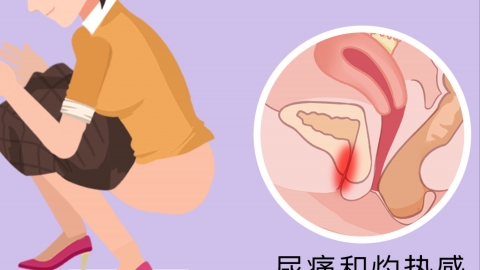Female difficulty in urination and inability to urinate: What could be the cause?
Generally, female urinary difficulties or inability to urinate may be caused by factors such as mental tension, pregnancy-related compression, urethritis, urethral stones, or uterine fibroids. It is recommended to seek timely medical attention, identify the underlying cause, and undergo symptomatic treatment under a doctor's guidance. Detailed explanations are as follows:

1. Mental tension: Emotional stress or anxiety may inhibit the urination reflex, causing difficulty in urination. Normal function usually resumes once the emotional state improves. Try to relax by listening to calming music or practicing deep breathing, create a quiet environment for urination, and avoid focusing excessively on the process of urination.
2. Pregnancy-related compression: In late pregnancy, the enlarged uterus may compress the bladder and urethra, affecting urine excretion and causing difficulty in urination. These symptoms typically improve after delivery. Avoid holding urine during pregnancy, adjust body position appropriately to facilitate urination, and attend regular prenatal checkups to monitor both fetal and maternal conditions.
3. Urethritis: Bacterial infection causing inflammation of the urethra may lead to mucosal congestion and swelling, blocking the urethra and causing difficulty in urination, often accompanied by frequent urination, urgency, and pain. Patients may take medications such as Cefixime capsules, Levofloxacin tablets, or Sanjin tablets as directed by a physician. Drinking plenty of water helps promote urination, flush the urethra, and maintain good personal hygiene.
4. Urethral stones: Stones blocking the urethra may hinder urine outflow, manifesting as difficulty in urination, interrupted urine stream, and pain. Smaller stones may be expelled by drinking more water and increasing physical activity. Larger stones require urethral stone removal surgery to relieve the obstruction.
5. Uterine fibroids: Large uterine fibroids may compress the bladder or urethra, causing difficulty in urination, possibly accompanied by heavy menstrual bleeding and abdominal pain. Patients may take medications such as Mifepristone tablets, Guizhi Fuling capsules, or Gongliuxiao capsules as directed by a physician to alleviate symptoms. Surgical removal of the fibroid may be necessary if the fibroid is too large, to relieve the pressure and restore normal urination function.
When women experience difficulty in urination, avoid straining or holding urine. Applying heat to the lower abdomen may help promote urination. Maintain adequate hydration, establish regular urination habits, reduce the risk of urinary system diseases, and support overall urinary system health in daily life.








